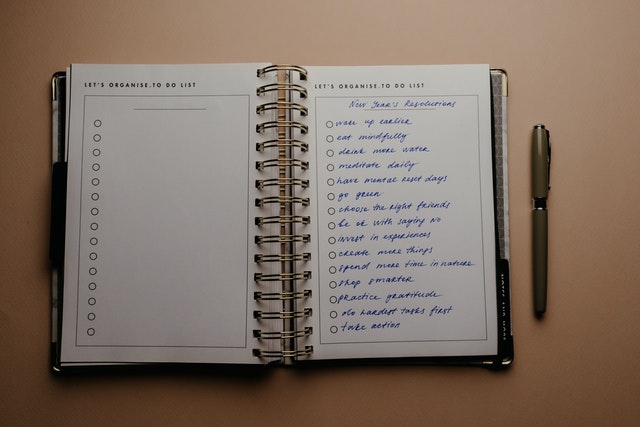Essentially, venting out is nothing but airing out our emotions that we have been trying to burst out for some time. In health terms, it is imperative to our mental well-being to make us feel like breathing in fresh air after being in a closed room for a long time with suffocation.
Table of Contents
Why is venting out so important?
Celebrated Astro Strategist cum Business Transformation Expert Hirav Shah says, “For instance, imagine a balloon that is already filled with air, and what is going to happen if we keep on pumping more and more air into the balloon? It will surely burst for apparent reasons. That’s the same thing that happens with us humans also. Being social animals, we experience tons of emotions every day, such as sorrow, anxiety, frustration, as we repeatedly bottle up these emotions. Due to this, after keeping on holding in these emotions or frustrations and bearing the pressure being put on us in any form, it finally ends up as an emotional outburst.”
Hirav Shah adds, “A few studies suggest that venting out gives us immediate relief from stress and cools us down. This technique teaches us that every emotion lasts for some moment only, and we will cool down after the burst out.
Usually, venting out involves two people; it is important that you do it the right way. It’s a burst of mixed feelings and emotions, which is why whoever is listening gets affected as well, obviously.“
As per Hirav Shah, a few things everyone should abide by before venting out to anyone are:
Asking for consent
The consent of the listener is of utmost importance. It is not easy to listen to others, especially when each individual has his or her own problems and so much going on in their own lives. If the other person is okay with it, let out all your feelings, but if the situation is vice-versa, then you must respect their choice. Forceful venting without the other person’s choice may end up making you feel pathetic and unheard with, with a reckless attitude.
How to find a safe space?
This is often termed one of the most underrated factors in venting out. You must have a confidante who will not judge you and help you, rather than adding to the negativity. You can find your safe space for venting to a friend, a family member, or your therapist or consultant.
What is Positive venting?
There will be both positive and negative types of venting. There are a few ways in which we express our emotions. If you wish to relieve stress or seek solutions to your problems, we must express them with the same intent, often termed positive venting.
Negative venting is the opposite and can be addictive in nature. It can also impact the other person in an unhealthy manner as some people get stuck with the dilemma of “to vent or not to vent” due to fear of getting judged by the second person. But It’s okay; you don’t necessarily have to rant your emotions to the other person. Instead, you can do it in other ways as well. Talking is surely the most prevalent form of venting out, but it’s not the only left option.
Hirav Shah says that find out a few other ways you can let go of your emotions.
Exercise
Working out like running or boxing, or weight lifting are some excellent ways to cool yourself down. Exercising helps you practice mindfulness, focus, and build deeper connections with yourself. Meditation or Yoga will also help you cool down and see-through and look at your deeper self through your own voice.
Journal
Journaling is another effective way used by many terms. Picking up a pen and a paper and writing down everything you may be feeling at that moment, by being very honest with yourself while performing this and reflecting on what you’ve written later on.
This type of venting will not only help you vent out without any help from anyone but will also endorse your feelings of self-love and happiness.
Podcast of Motivation, Art or Music
Sometimes, words are not enough to express your thoughts and feelings. During this time, Podcast, Art and Music rescue each other and help to generate healthy ways to release your emotions and give them a beautiful texture. These are effective mediums to vent out. But, first, you need not be an expert in any of these departments.
Practice Gratitude
By looking past the negative feelings, you may have been surrounded with and searching for the good it has brought to you. Of course, this may not be the best option every time, but it can be helpful in many situations. You can even try this after you ventilate to any of your friends and understand the whole situation once again in a relaxed mood.
Mirror-Gazing
When we lose the ability to look deeper when feeling a rush of emotions, this method helps to regain our lost energy and self-confidence. Looking in the mirror and talking to yourself about what’s bothering you can help in yielding better results. Spending time reflecting on everything you feel helps you understand what’s bothering you more.
Final Words
Hirav Shah concludes by saying, “There is no rule that all the above ways don’t work out for you the way it may work out for others. For example, it’s completely fine not to be able to vent to your close ones, but holding in your confusing feelings is not healthy at all. It may lead to self-destruction indeed.“
“Venting out” is a colloquial phrase that refers to expressing one’s emotions, frustrations, or concerns, typically by talking to someone or by sharing thoughts and feelings. It’s a way to release pent-up emotions or stress. Here are some ways people might use the phrase “venting out”:
Venting to a Friend: Sometimes, when people are feeling stressed, angry, or upset, they might call or meet up with a friend to vent out their feelings. This involves talking about what’s bothering them and seeking emotional support or advice.
Venting in a Journal: Writing in a journal is another way to vent out emotions. Some people find it therapeutic to put their thoughts and feelings on paper as a form of self-reflection and release.
Venting at Work: In a work context, “venting out” can refer to discussing work-related frustrations or challenges with a colleague or supervisor. This can be a way to address issues and seek solutions.
Venting Online: With the rise of social media, some individuals vent out their thoughts and frustrations on platforms like Twitter, Facebook, or online forums. They might post about their day, share opinions, or seek advice from their online community.
Venting in Therapy: Many people turn to therapy or counseling as a safe and structured way to vent out their emotions, gain insights, and work through issues with the guidance of a trained professional.
It’s important to note that while venting can be a healthy way to cope with emotions, excessive or constant venting without seeking solutions or constructive actions may not be productive. In some cases, it’s beneficial to balance venting with problem-solving and seeking support from trusted individuals or professionals when needed.
































